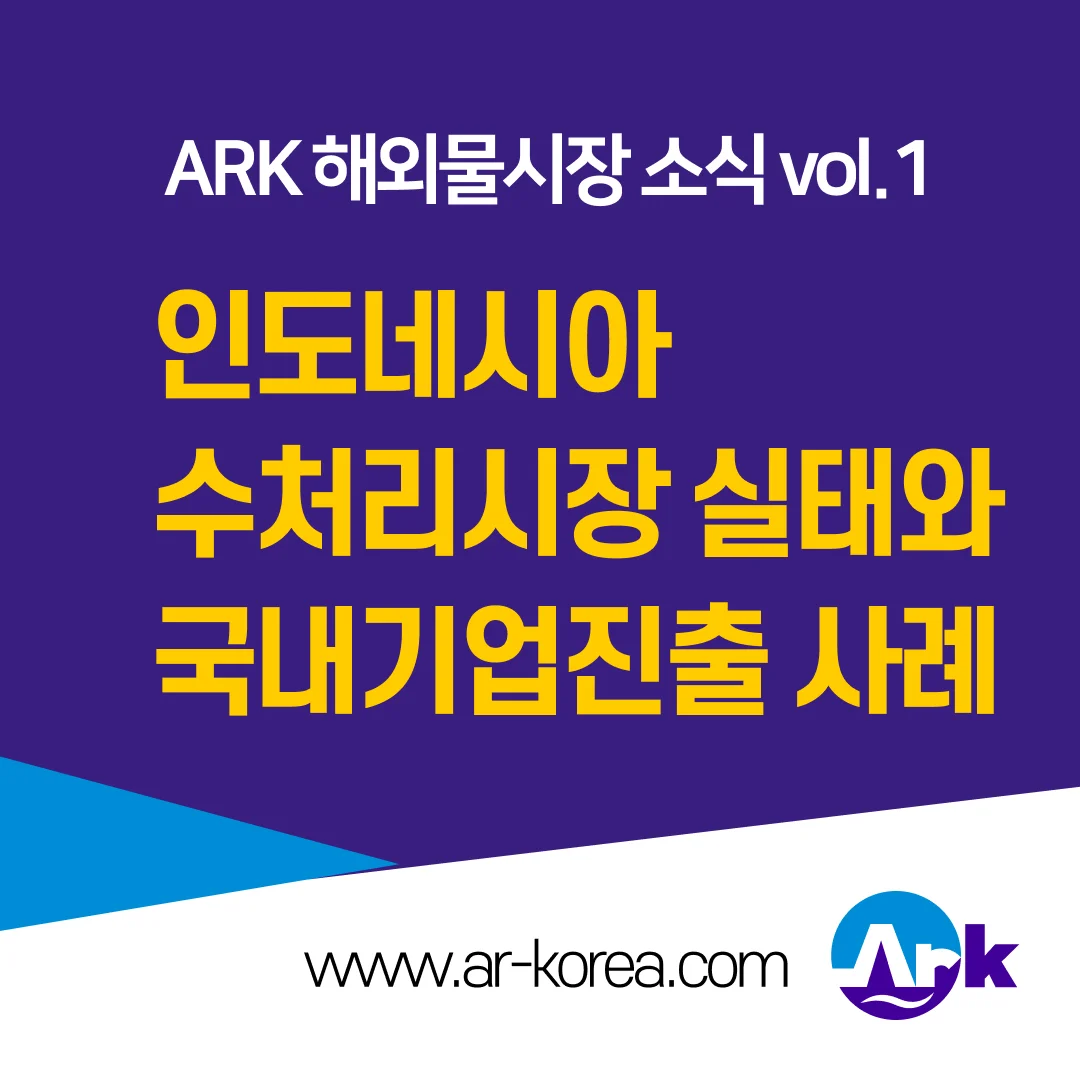

Solutions in Water Environment
for People and Planet


Hello, I'm Minhee Hwang from the public relations office.
This is a continuation of our last column on the water treatment market in Indonesia, a country with a reputation around the world as a sinking ship.
Last column, "ARK Environmental TALK Part 1] Groundwater and Water Treatment Market in Indonesia In 75%, I said that the cause of the submerged river in the Indonesian capital Jakarta lies in groundwater overuse, and that the underlying reason lies in the unauthorized use of groundwater by citizens with little water and sewerage infrastructure, too polluted river water, and relatively expensive water tariffs.
Nevertheless, it is a country that is emerging alongside Vietnam as the next China replacement, with abundant resources and the potential for numerous projects involving water purification plants and water relocation by domestic construction companies.
In particular, Indonesia has been operating a water supply company under a 25-year contract with French global environmental company SUEZ since 1998, and is using German and French products, but most of them are outdated.
The loss rate of purified water due to aging water infrastructure is over 401 TP3T, and there is also an agency infrastructure due to insufficient sewage and wastewater treatment talent and know-how.
The Indonesian water treatment market is in a mixed state, with aging facilities and a clear commitment to water transfers by France's SUEZ, and some Japanese companies entering the market.
For examples of Korean companies entering Indonesia, see
-Peace Engineering / Sinopex / Taeyoung Construction / TESK / Gyeongju City Clear Water Business Unit's entry into Surabayashi.
-현재 가장 주목받는 2가지 프로젝트 중 하나는 올해말 12월에 수주완공이 될 예정인 ‘까리안댐’을 포함한 총 사업인 2000억 규모의 ‘까리안 광역상수도사업’입니다.
The project to build water intake, water supply, water purification plant, and water transmission facilities using the Karian Dam as a water source will be carried out over 33 years from January 2022 to December 2054.
This project was proposed by Korea Water Resources Corporation to the Indonesian government as a regional water supply project following the Korea-Indonesia summit in 2017.
This is one of the best examples of the overseas expansion of K-WATER, Team Korea's water industry, which was created through government cooperation between Korea and Indonesia.
또한 수도이전 사업과 관련된 국토교통부 원희룡 장관주도의 자카르타 수도이전에 따른 ‘누산티라’ 스마트시티의 탄소중립형 정수장 건설도 예정되어 있습니다.
In an article circa 2015
Water company PT PAM Lyonnaise Jaya (Palyja) is urging citizens to conserve water, as the quality of the Sungai Krukut River, the source of the city's tap water, is deteriorating. The Zaraja water company said it was forced to reduce tap water production due to the deteriorating water quality. In order to ensure uninterrupted tap water supply to citizens, the company was forced to suspend water consumption for the city park, which uses 150 liters per second, because the water quality of the Sungai Krukut River, the source of the water supply, has deteriorated so much that it has exceeded the acceptable standard for purified water. In order to produce safe tap water, the company had to reduce production from 400 liters per second to 200 liters per second.
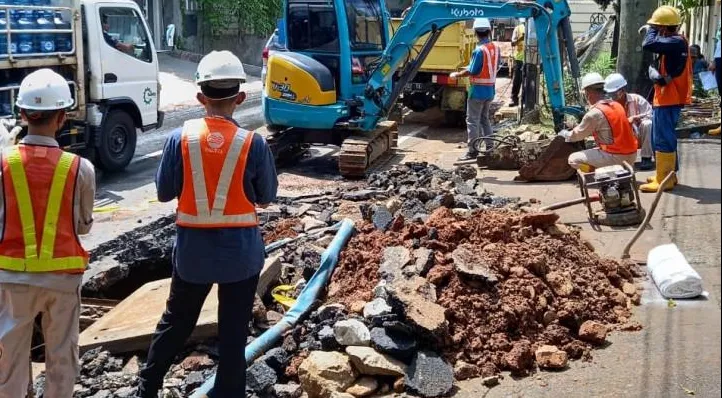
It is operated by the Indonesian private water company PALYZA (PT. PAM Lyonnaise Jaya), which is a joint venture with the French global environmental company SUEZ. The contract has been in place since 1998 for 25 years.
According to the Jakarta trade mission, they have been operating as a joint venture with SUEZ, but are struggling to operate due to the use of old French and German equipment.
References : Water and wastewater treatment in Indonesia
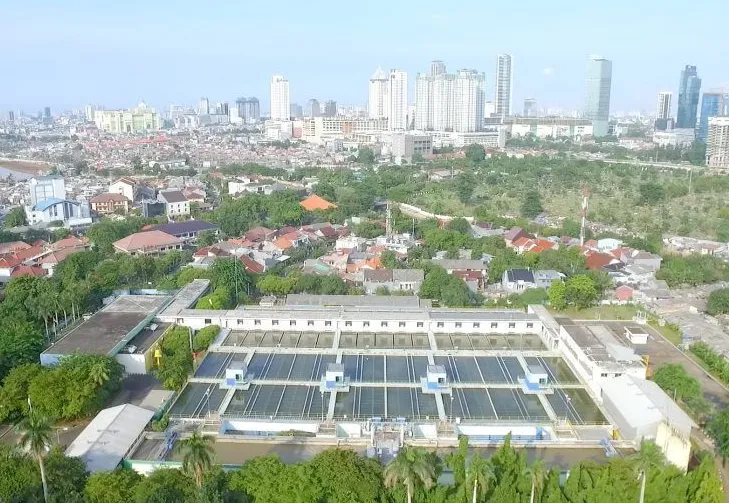
As the largest in Indonesia, PALYJA has four water purification plants (IPAs) with a total network of 5,400 kilometers, providing 73.231 TP3T of clean water access and 601 TP3T of coverage.
The Jogja Water Supply Company mainly supplies water to the western part of Jakarta.
Most of the water purification plants in these regions are old, having been introduced in the 50s, and it is considered that there are ample opportunities for domestic companies to enter the market.

In the process of treating raw water into purified water, PALYJA has two main water treatment plants, Pejompongan I and Pejompongan II, and two additional water treatment plants, Cilandak and Taman Kota, each equipped with pumping and storage facilities.
In addition to raw water treatment, PALYJA also acquires treated bulk purified water from third parties. The clean water is supplied to PALYJA's distribution centers, namely DCR 4 in Kebon Jeruk and DCR 5 in Lebak Bulus, through a network of associated pipes. These two distribution centers are equipped with water tanks and pump stations.
Each installation has the following capacity.
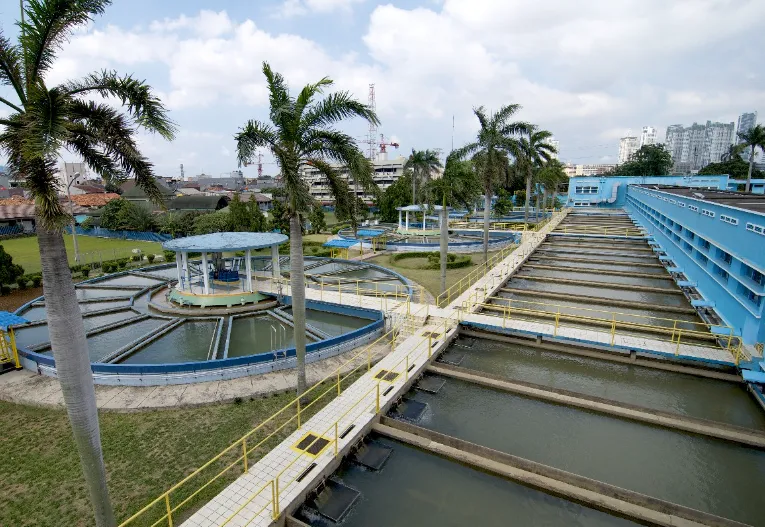
Zaragoza Water Company's Water Treatment Plant Operations
Pejompongan I water purification plant: 2,000 liters per second
Pejompongan II Water Purification Plant: 3,600 liters per second
Cilandak Water Purification Plant (Cilandak): 400 liters per second
Taman Kota (closed): 200 liters per second
* Taman Kota has been out of service since March 2007 due to raw water quality issues.
DCR 4 Kebon Jeruk (3rd party bulk purified water treatment): 2,000 liters per second
DCR 5 Lebak Bulus(third-party bulk purified water treatment) : 1,000 liters per second
The Pejompongan Water Treatment Plant (WTP) supplies approximately 60.851 TP3T of West Jakarta's water supply, with approximately 4.301 TP3T coming from the Cilandak WTP, and the remaining approximately 34.851 TP3T is treated at DCR 4 and DCR5.
Additional information:
The production capacity of the Pejompongan I and II facilities is sufficient to meet the water needs of the West Jakarta region. The Taman Kota plant was closed due to raw material quality issues in the Cakung River. The DCR4 and DCR5 facilities are used to treat bulk treated water from third parties.
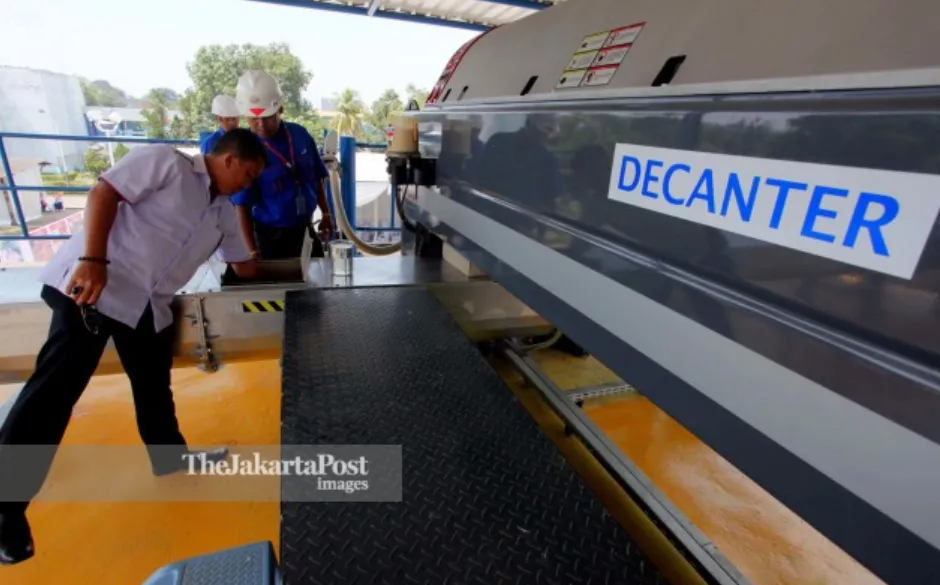
This water treatment plant is located in East Jakarta and produces 4500 liters per second.
Eastern Buaran Water Treatment Plant
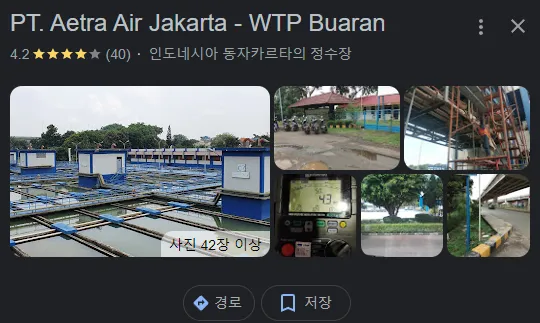
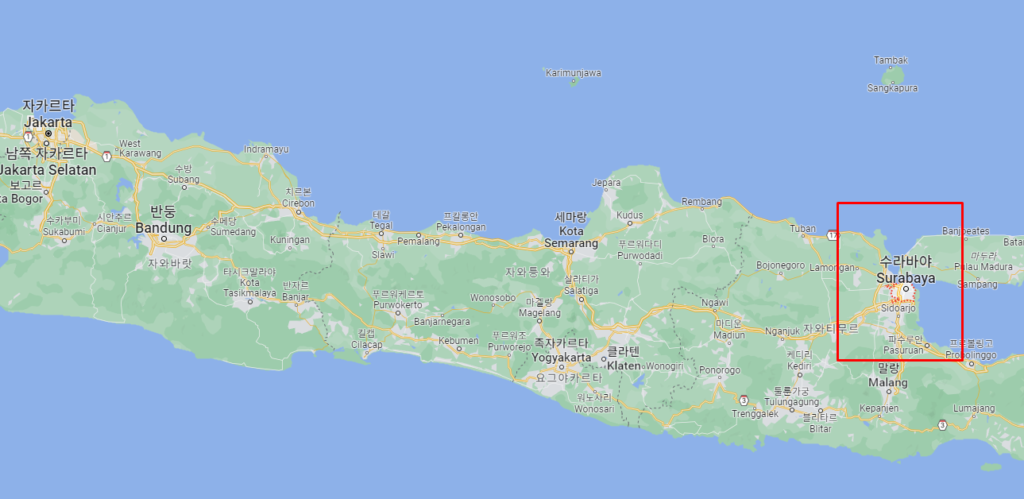
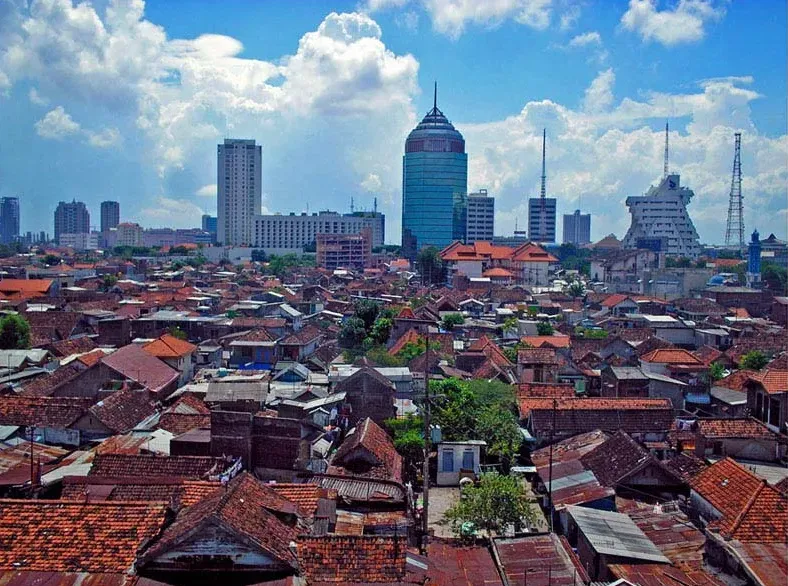
Surabaya is Indonesia's second largest city and the capital of the province of Java. With a population of about 3 million, it is the country's largest port, located at the mouth of the Mas River on the north coast of Java Island.
In Korea, Gyeongju Clear Water Business Center and TSK have entered the region, and we have signed an MOU with Gyeongju City.
The Chiaeum Water Purification Plant, which provides over 3 million tons of tap water per year to 100,000 local residents, was built by Korean company Sinopex. With the G-Brain P7 series, each filter can purify over 100-150 tons of water per day.
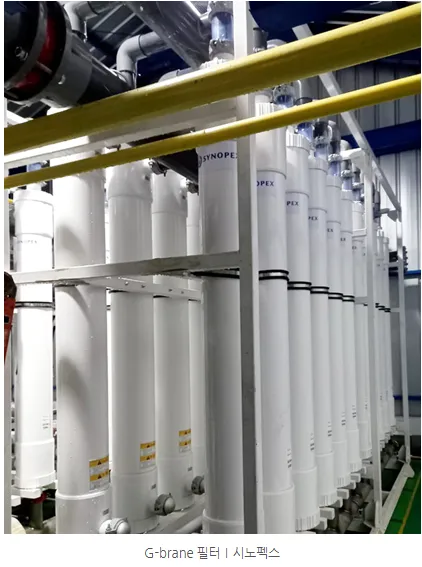
Source: Sinopex Official Blog / Read more : Move
Closing thoughts
While we support Korean companies expanding overseas, we are also concerned about the situation in Indonesia, which is sinking 25 centimeters per year. Jeju Island is also experiencing depletion due to overuse of groundwater, and there are rumors that it is becoming like Indonesia.

The Karian Dam is scheduled to be completed in December of this year, at which point it will be a massive $200 billion project that will include the construction of all infrastructure, including water intake, water purification, and water transmission.
The project will be built using the Karian Dam as a water source and will take 33 years from January 2022 to December 2054.
This project was proposed by Korea Water Resources Corporation to the Indonesian government as a wide-area water supply project on the occasion of the 2017 Korea-Indonesia Summit.
The Indonesian capital Jakarta is currently subsiding at a rate of 25 centimeters per year. This is a result of groundwater misuse, and most riverine water sources are so heavily contaminated that both surface water purification and sewage wastewater treatment are difficult, and the loss rate of the existing water purification facility is 441 TP3T, so a new water supply transmission line and water purification facility are needed from the west to Jakarta based on a new water source, 'Karian Dam'.

A consortium of the Indonesian government and Korea Water Resources Corporation, dubbed 'Team Korea," is K-WATER's most prominent overseas expansion.
Why choose ARK for your offshore water treatment plant project.
It is the only company in Southeast Asia to develop decanter centrifuges locally by fostering local engineers.
We promise fast delivery and smooth communication.
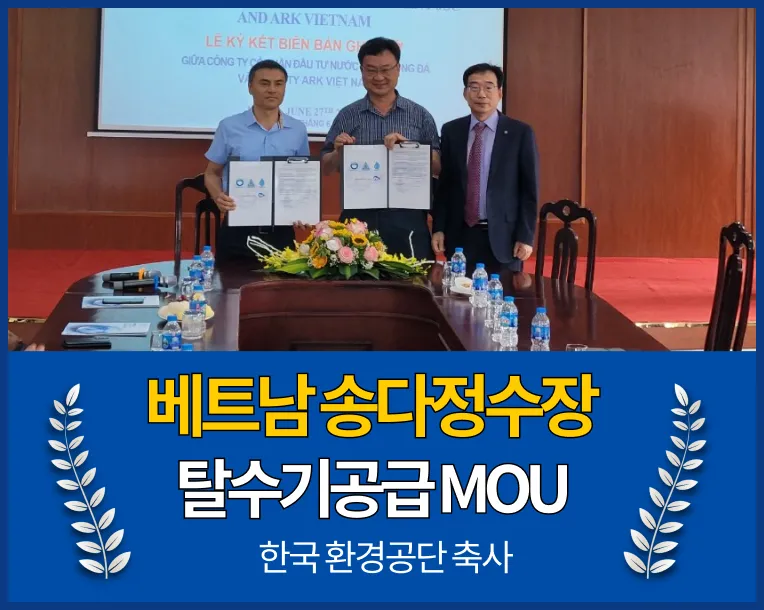
ARK welcomes companies, consortium representatives, and trade officers in charge of overseas water purification plants to visit our headquarters in Korea and visit our factory in Vietnam.
There are Korean executives and employees at the Vietnam factory, and they are available for factory tours and consultations.in the file.
–Organized Korean consortium for export sales to Egypt
–Numerous water treatment plant projects in the US, Spain, Japan, Malaysia, Vietnam, Indonesia, Poland, Russia, Ireland, Brazil, etc.
We are open to open consultation on large-scale projects overseas, participation in MOUs with local water utilities overseas, and consortiums.
Above all, we have extensive experience and understanding of the Southeast Asian market with over a decade of factory operations in Vietnam and MOUs and deliveries to large water purification plants.
We welcome your visit and invite you to contact us via the banner below for collaboration inquiries.
Let's do it with the AAK Centrifugal Dehydrator!
